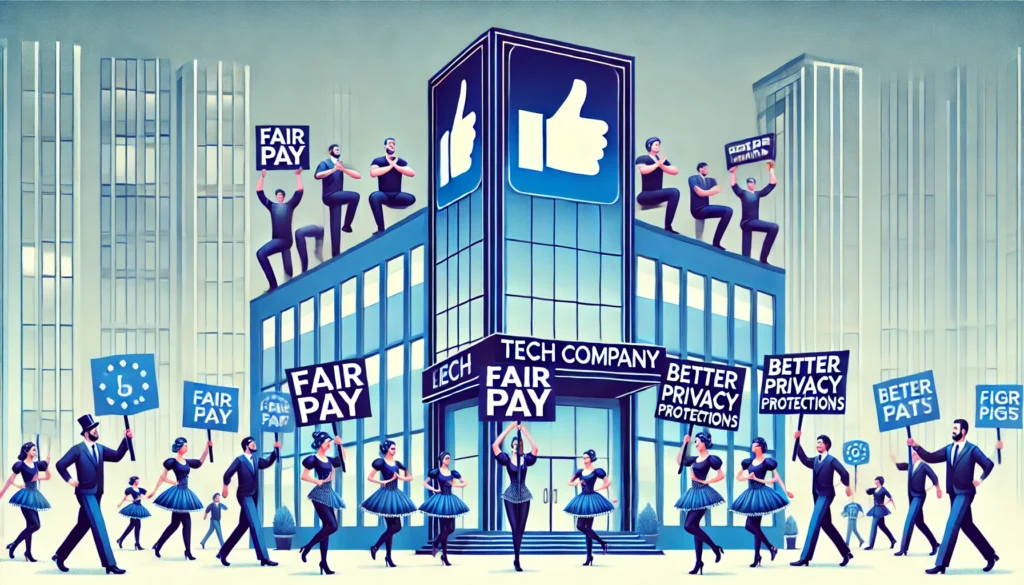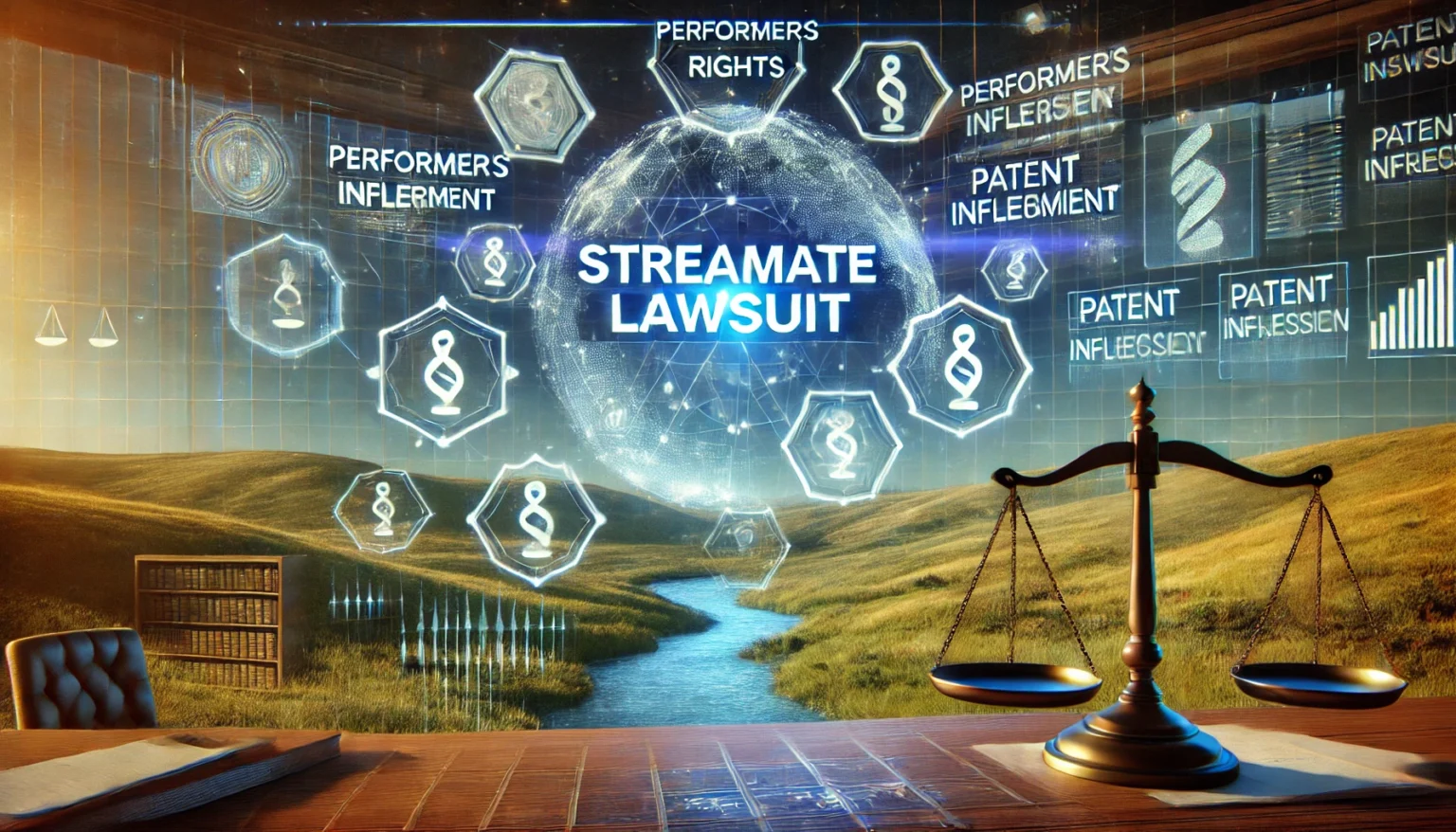Streamate Lawsuit is one of the most popular adult live-streaming platforms that connects performers with viewers through real-time video. This platform has helped revolutionize the adult entertainment industry by offering an interactive experience where users can engage with performers directly. However, like many tech platforms, Streamate has faced legal issues, particularly concerning patent rights and its treatment of performers. These lawsuits highlight significant challenges faced by digital platforms in complying with intellectual property laws and ensuring fair treatment of workers. In this article, we will explore the key lawsuits involving Streamate and discuss the broader implications for the industry.
Background on Streamate
Company History
Streamate was founded to provide a platform where adult content creators (performers) could stream live videos and interact with their audience in real-time. Over the years, it has become one of the leading platforms in the adult entertainment industry. It offers a space for performers to monetize their content, mainly through tips, private shows, and interaction with viewers. With millions of active users, Streamate has firmly established itself as a giant in the live-streaming niche of the adult entertainment industry.
How Streamate Works
Streamate operates on a straightforward business model where performers broadcast live content, and viewers pay for access to private shows or send tips. The platform allows performers to control their schedules, and it provides viewers with an interactive experience. Through this model, performers can earn money based on their time spent on the platform and their ability to attract viewers. Streamate provides both performers and viewers with the flexibility of a digital interaction-based platform.
Streamate Lawsuit: Key Issues and Its Broader Impact
The Streamate lawsuit has brought attention to significant issues affecting both the platform and the broader digital entertainment industry. This legal battle focuses on two primary concerns: patent infringement and grievances from performers who use the platform.
Patent Infringement
In 2014, Streamate was accused of using patented streaming technology without proper licensing. This lawsuit raised important questions about intellectual property rights and the need for companies to ensure their technology complies with legal standards. Patent disputes like this are common in the tech industry, especially with platforms relying on innovative solutions to provide services. The case ended with a settlement, highlighting the importance of proactive legal strategies to avoid such conflicts.
Performer Grievances
More recently, in 2024, performers filed lawsuits against Streamate, alleging unfair payment practices, inadequate customer support, and privacy concerns. Performers claimed they were not compensated fairly for their work, faced difficulties resolving payment disputes, and experienced privacy violations. These concerns emphasize the growing demand for platforms to provide better support, transparent payment structures, and stronger data protections.
Broader Impact
The lawsuit has far-reaching implications. It has underscored the need for digital platforms to balance innovation with compliance, fair treatment, and ethical business practices. For performers, it highlights the importance of advocating for their rights in a rapidly evolving digital economy. For the industry, it serves as a reminder to adopt fairer policies and prioritize trust and transparency.
The Streamate lawsuit is not just a legal issue—it’s a turning point that could shape the future of digital platforms, particularly those in the adult entertainment sector.
Streamate Lawsuit: Key Issues and Its Broader Impact
The Streamate lawsuit has brought significant issues to light, impacting both the platform and the broader digital entertainment industry. It focuses on two major concerns: patent infringement and performer grievances. In 2014, Streamate faced allegations of using patented streaming technology without proper licensing. This raised critical questions about intellectual property rights and the need for companies to ensure legal compliance in their use of technology. The case concluded with a settlement, highlighting the importance of proactive measures to avoid such conflicts.
In 2024, performers using Streamate filed lawsuits citing unfair payment practices, inadequate customer support, and privacy concerns. They claimed insufficient compensation, difficulties in resolving payment disputes, and breaches of privacy. These grievances emphasize the growing demand for platforms to implement transparent systems, offer better support, and protect personal data more effectively.
The broader impact of these legal challenges is substantial. They stress the need for platforms to balance innovation with fair treatment, legal compliance, and ethical practices. For performers, the lawsuits underscore the importance of advocating for their rights in a digital-first world. For the industry, these cases serve as a wake-up call to prioritize fairness, transparency, and trust in their operations. The Streamate lawsuit is a pivotal moment that could influence how digital platforms evolve, particularly in the adult entertainment sector.
Details of the Streamate Lawsuits
Patent Infringement Case (2014)
In 2014, Streamate was embroiled in a lawsuit concerning patent infringement. The lawsuit was filed by another company that alleged Streamate was using patented technology related to streaming. The plaintiffs argued that Streamate was using certain methods for video transmission and playback without obtaining the appropriate licensing or permission. The technology in question involved the streaming of live video and data processing during those broadcasts.
This lawsuit raised important issues about the technology that powers live-streaming platforms. It also underscored the complexities tech companies face when dealing with intellectual property. The patent infringement case was settled, but it remains a cautionary tale about the importance of protecting innovation and respecting intellectual property rights in the fast-moving world of digital technology.
Performer Grievances and Legal Actions (2024)
More recently, in 2024, Streamate faced a wave of legal challenges from performers. Many of these performers raised concerns regarding how they were treated by the platform, specifically with regard to payment practices, support services, and privacy. These concerns resulted in legal actions aimed at improving the working conditions for those using the platform.
Some of the major issues raised in the lawsuits included:
- Unfair Payment Practices: Performers claimed that Streamate did not pay them fairly for their services or, in some cases, withheld payments without explanation. This created significant financial insecurity for those who relied on the platform as their main source of income.
- Inadequate Support: Performers also expressed dissatisfaction with Streamate’s customer service, particularly in relation to resolving issues with payments and account management. Many performers felt that the platform did not provide sufficient support when they encountered technical problems or needed assistance with their accounts.
- Privacy Concerns: Another significant concern raised by performers was the handling of their personal data. Some performers claimed that their privacy was violated, whether through unauthorized data sharing or failures to protect sensitive information. In an era where privacy is a critical issue, these allegations prompted the need for stronger privacy protections for digital workers.
As a result, several performers filed lawsuits seeking better compensation, improved customer service, and more robust data protection policies.
Legal and Ethical Implications
Compliance with Laws
The lawsuits involving Streamate raise critical questions about the need for digital platforms to comply with both intellectual property laws and labor laws. The patent infringement case serves as a reminder that companies operating in the tech space must be diligent in securing licenses for any technology they use, especially when dealing with complex digital systems like streaming.
On the other hand, the lawsuits filed by performers highlight the importance of treating digital workers fairly. Just like workers in any other sector, performers need to be compensated for their labor and supported when issues arise. These lawsuits emphasize the need for companies to comply with labor laws, especially when the workers are highly dependent on the platform for income.
Impact on the Industry
The Streamate lawsuits are significant not only for the platform itself but for the entire adult entertainment and live-streaming industry. As the industry continues to grow, the treatment of performers and the protection of intellectual property will be important issues. The outcome of these lawsuits could set precedents for how other platforms operate, how they treat performers, and how they protect their intellectual property. Companies in the adult entertainment industry, as well as other sectors, may be forced to adopt better policies, fairer payment systems, and stronger legal protections as a result.
Key Stakeholders
Performers
Performers are at the heart of the legal actions against Streamate. Their grievances highlight the importance of transparency, fair treatment, and privacy protection on digital platforms. Many performers have argued that the platform’s business practices were unfair and not transparent enough. They also expressed the need for platforms to be held accountable for the treatment of their workers. These lawsuits represent a growing trend in the adult entertainment industry for performers to advocate for better working conditions, pay, and privacy protections.
Streamate Management
Streamate’s management team has been under scrutiny as a result of these lawsuits. While they have worked to resolve some issues, the legal actions reflect dissatisfaction with how the platform has handled its relationship with performers. The company’s responses to these legal actions will have a lasting impact on its reputation and operational practices.
Legal Authorities
Legal authorities, including courts and regulators, play a key role in resolving these disputes. In cases involving patent infringement, courts must evaluate the claims made by both parties to determine whether any laws have been broken. In the case of performer grievances, regulators must consider whether the platform is complying with labor laws, data protection regulations, and other legal standards. The outcome of these lawsuits could lead to stricter regulations and clearer standards for how digital platforms operate.
Broader Impact on Technology and Business Practices
Patent Issues in Tech
The patent infringement lawsuit faced by Streamate highlights the ongoing issue of patent disputes in the tech industry. Digital companies must be cautious when adopting new technologies to ensure they are not infringing on existing patents. The case shows that even large platforms can face significant legal challenges if they do not properly navigate intellectual property rights. For other tech companies, this case serves as a reminder to ensure they have proper licensing and legal protections for their technology.
Evolving Performer Rights
As digital platforms like Streamate become more prevalent, there is a growing need for platforms to recognize the rights of performers and workers. The lawsuits filed by performers underscore the importance of ensuring fair compensation, privacy, and transparency. In the future, there may be greater efforts within the adult entertainment industry to standardize contracts, payment structures, and privacy protections. These developments could lead to better working conditions for performers across the board.
Lessons Learned
For Companies
The Streamate lawsuits offer valuable lessons for other companies, particularly those operating in digital and live-streaming spaces. Companies must be diligent about protecting their technology, adhering to intellectual property laws, and ensuring fair treatment for all users, especially performers. Proactively addressing potential legal issues can help avoid costly and damaging lawsuits.
For Performers and Users
For performers, the lawsuits emphasize the importance of understanding one’s rights when working on digital platforms. It’s essential for performers to advocate for better treatment and fair compensation. Users, too, can learn the importance of supporting platforms that treat their workers ethically and respect privacy.
For the Industry
The lawsuits serve as a wake-up call for the adult entertainment industry and similar sectors. There is a clear need for platforms to adopt stronger ethical practices, better support systems for workers, and more robust privacy policies. The industry may see an increased push for transparency and fairness as a result of these legal actions.
Conclusion
The Streamate lawsuits provide crucial insights into the legal challenges faced by digital platforms. From intellectual property disputes to the treatment of performers, these lawsuits underscore the importance of fair business practices, legal compliance, and respect for workers’ rights. As the digital entertainment sector continues to grow, platforms like Streamate will need to adapt to ensure they meet legal and ethical standards. The future of the industry depends on how companies handle these issues and whether they prioritize fairness, transparency, and the protection of both users and performers.
FAQs
What was the main issue in Streamate’s patent infringement case?
The lawsuit alleged that Streamate used patented streaming technology without permission, leading to a settlement.
Why did performers file lawsuits against Streamate in 2024?
Performers raised concerns about unfair payment practices, inadequate support, and privacy violations.
How did Streamate respond to the legal challenges?
Streamate worked to address some concerns but faced criticism for lack of transparency and prompt action.
What are the broader implications of these lawsuits?
The lawsuits highlight the need for better performer rights, stronger privacy protections, and legal compliance for platforms.
How might these lawsuits impact the adult streaming industry?
They could lead to industry-wide reforms in payment practices, privacy safeguards, and support systems for performers.
Article Recommendations
Chula Vista Mesothelioma Lawyer Vimeo: Discover Your Legal Options Through Online Resources
Durham Mesothelioma Lawyer Vimeo: Empowering Mesothelioma Victims With Legal Knowledge and Resources
Worcester Mesothelioma Lawyer Vimeo: A Reliable Tool for Locating Top Lawyers in Massachusetts















